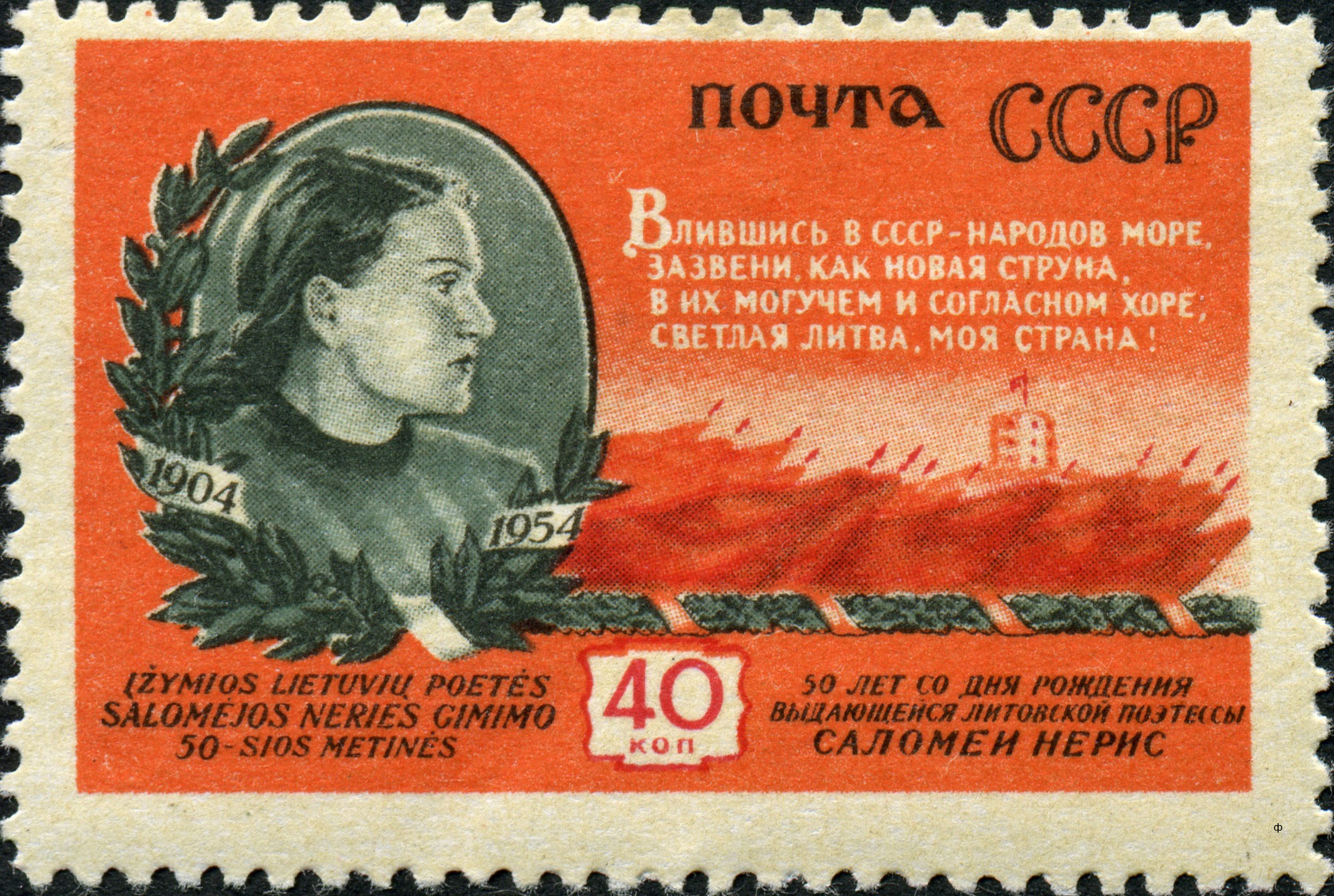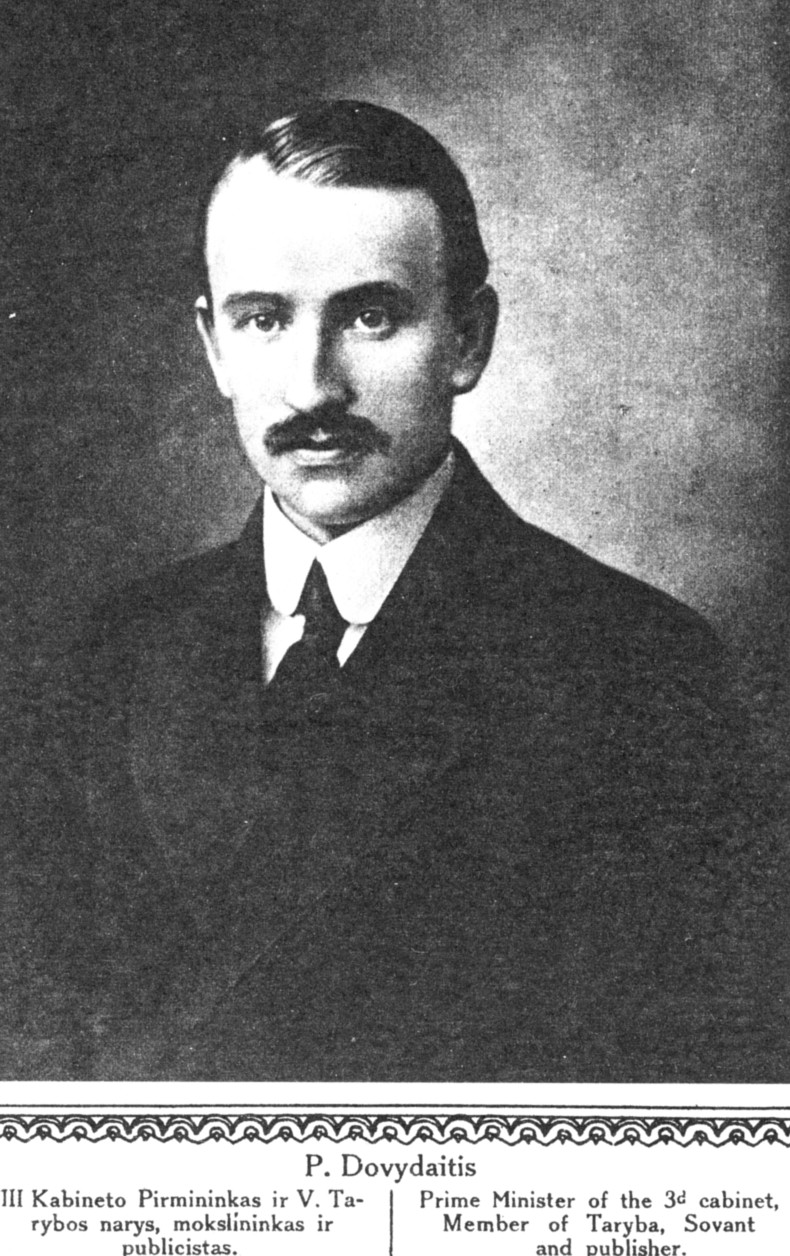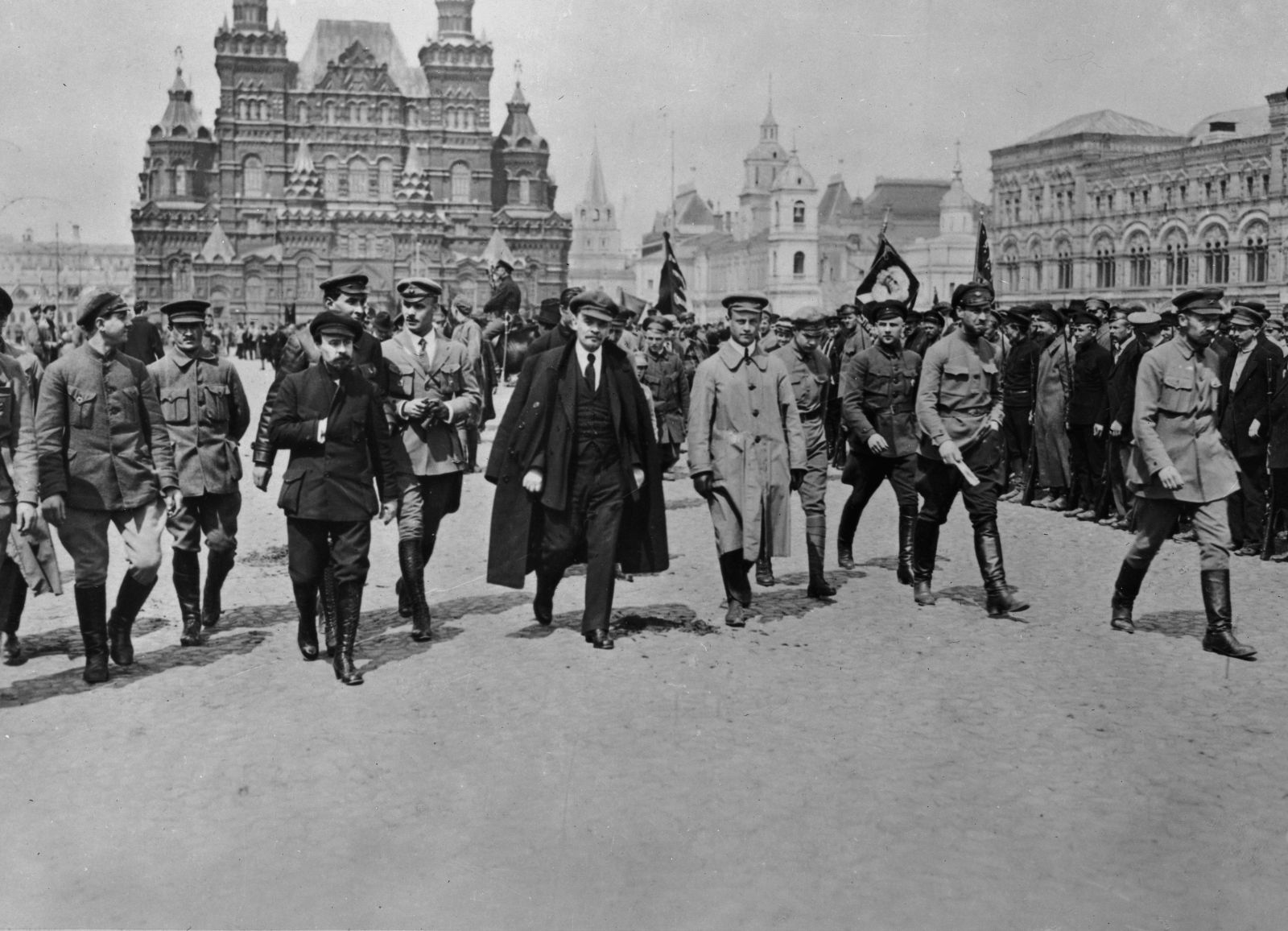|
Salomėja Nėris
Salomėja Bačinskaitė-Bučienė, mostly known by her pen name Nėris (; 17 November 1904 – 7 July 1945) was a Lithuanian poet. Biography Salomėja was born in , Suwałki Governorate (current district of Vilkaviškis). She graduated from the University of Lithuania where she studied Lithuanian and German language and literature. After she was a teacher in Lazdijai, Kaunas, and Panevėžys, her first collection of poems titled (''In the Early Morning''), was published in 1927. In 1928, Salomėja graduated from the university and was appointed to teach German language at the gymnasium of the Žiburys Society in Lazdijai. Until 1931, Nėris contributed to nationalist and Roman Catholic publications. While studying German in Vienna, in 1929, Salomėja met Lithuanian medical student Bronius Zubrickas and became attracted to him. Zubrickas had socialist views and Salomėja engaged in socialist activities in order to court him. In 1931, Salomėja moved to live in Kaunas, wh ... [...More Info...] [...Related Items...] OR: [Wikipedia] [Google] [Baidu] |
Suwałki Governorate
Suwałki Governorate was an administrative-territorial unit (''guberniya'') of Congress Poland of the Russian Empire, which had its seat in the city of Suwałki. It covered a territory of about . History In 1867, the territories of the Augustów Governorate and the Płock Governorates were re-organised to form the Płock Governorate, the Suwałki Governorate (consisting mostly of the Augustów Governorate territories) and a recreated Łomża Governorate. After World War I, the governorate was split between the Second Polish Republic and Lithuania, mostly along ethnic lines (with an exception of the area in the proximity of Puńsk and north of Sejny). The Polish part, known as Suwałki Region, was incorporated into the Białystok Voivodeship (1919-1939), Białystok Voivodeship. The Lithuanian region of Suvalkija was named after the governorate. Demographics and economy According to contemporary Russian Empire statistics, from 1889 the Suwałki Governorate was predominantly Lithua ... [...More Info...] [...Related Items...] OR: [Wikipedia] [Google] [Baidu] |
Žiburys Society
Žiburys Society (''žiburys'' means light, beacon; ) was a society established in 1906 that organized and maintained Lithuanian schools in the Suwałki Governorate of the Congress Poland, Russian Empire (later, Suvalkija region of independent Lithuania). Organized and run by priests, the society supported and promoted Roman Catholic ideas and worldview. The society organized primary schools and later gymnasiums. In 1907, it established pro-gymnasium for girls in Marijampolė. In 1918, it established several Gymnasium (school), gymnasiums. Žiburys, along with other Lithuanian organizations, was closed by the new Soviet regime following the Soviet occupation of the Baltic states (1940), occupation of Lithuania by the Soviet Union in June 1940. Establishment After the failed Uprising of 1863, the Russian Empire, Tsarist regime enacted strict Russification policies: the Lithuanian press ban, Lithuanian press was prohibited, all non-government schools were closed, and government scho ... [...More Info...] [...Related Items...] OR: [Wikipedia] [Google] [Baidu] |
Soviet Union
The Union of Soviet Socialist Republics. (USSR), commonly known as the Soviet Union, was a List of former transcontinental countries#Since 1700, transcontinental country that spanned much of Eurasia from 1922 until Dissolution of the Soviet Union, it dissolved in 1991. During its existence, it was the list of countries and dependencies by area, largest country by area, extending across Time in Russia, eleven time zones and sharing Geography of the Soviet Union#Borders and neighbors, borders with twelve countries, and the List of countries and dependencies by population, third-most populous country. An overall successor to the Russian Empire, it was nominally organized as a federal union of Republics of the Soviet Union, national republics, the largest and most populous of which was the Russian SFSR. In practice, Government of the Soviet Union, its government and Economy of the Soviet Union, economy were Soviet-type economic planning, highly centralized. As a one-party state go ... [...More Info...] [...Related Items...] OR: [Wikipedia] [Google] [Baidu] |
Supreme Soviet Of The Soviet Union
The Supreme Soviet of the Union of Soviet Socialist Republics (SSUSSR) was the highest body of state authority of the Soviet Union (USSR) from 1936 to 1991. Based on the principle of unified power, it was the only branch of government in the Soviet state. Prior to 1936, the Congress of Soviets of the Soviet Union, Congress of Soviets was the supreme legislative body. During 1989–1991 Congress of People's Deputies of the Soviet Union, a similar, but not identical structure was the supreme legislative body. The Supreme Soviet appointed the Council of Ministers of the Soviet Union, Council of Ministers, the Supreme Court of the Soviet Union, Supreme Court, and the Procurator General of the Soviet Union, Procurator General of the USSR as well as elected the Presidium of the Supreme Soviet, Presidium which served as the USSR's Head of state#Multiple or collective heads of state, collective head of state under both the 1936 Constitution of the Soviet Union, 1936 and 1977 Constitutio ... [...More Info...] [...Related Items...] OR: [Wikipedia] [Google] [Baidu] |
People's Seimas
The People's Seimas () was a puppet legislature organized in order to give legal sanction to the occupation and annexation of Lithuania by the Soviet Union. After the Soviet ultimatum in June 1940, a new pro-Soviet government was formed, known as the People's Government. The new government dismissed the Fourth Seimas and announced elections to the People's Seimas. The elections were heavily rigged, and resulted in a chamber composed entirely of Communists and Communist sympathizers (the electorate had no choice as 79 candidates were offered to the 79 seats). The new parliament unanimously adopted a resolution proclaiming the Lithuanian Soviet Socialist Republic and petitioned for admission to the Soviet Union as a constituent republic. The Supreme Soviet of the USSR accepted the Lithuanian petition on 3 August 1940. The People's Seimas adopted a new constitution, a close copy of the 1936 Soviet Constitution, on 25 August and renamed itself to the Supreme Soviet of the Lithuania ... [...More Info...] [...Related Items...] OR: [Wikipedia] [Google] [Baidu] |
Occupation Of Baltic Republics
The occupation of the Baltic states was a period of annexation of Estonia, Latvia and Lithuania by the Soviet Union from 1940 until its dissolution in 1991. For a period of several years during World War II, Nazi Germany occupied the Baltic states after it invaded the Soviet Union in 1941. The initial Soviet invasion and occupation of the Baltic states began in June 1940 under the Molotov–Ribbentrop Pact, made between the Soviet Union and Nazi Germany in August 1939 before the outbreak of World War II. The three independent Baltic countries were annexed as constituent Republics of the Soviet Union in August 1940. Most Western countries did not recognise this annexation, and considered it illegal. In July 1941, the occupation of the Baltic states by Nazi Germany took place, just weeks after its invasion of the Soviet Union. The Third Reich incorporated them into its ''Reichskommissariat Ostland''. In 1944, the Soviet Union recaptured most of the Baltic states as a result of ... [...More Info...] [...Related Items...] OR: [Wikipedia] [Google] [Baidu] |
Ateitis
The Lithuanian Catholic Federation Ateitis (literally, 'future') is a youth organization in Lithuania uniting Catholic-minded schoolchildren, university students, and alumni. Members of the Ateitis Federation are known as . Name and aims The aim of Ateitis is the integral development of young people enabling them to be effective apostles of Christ and creative agents capable of changing society according to Christian values. For historical reasons another central aim is to preserve the national heritage and culture of Lithuania. The five principles of Ateitis are: Catholicism, community spirit, social responsibility, education and patriotism. The motto of Ateitis is ''To Renew All Things in Christ'' (, ). The ' magazine is associated with the organization. Emblem The emblem of Ateitis depicts a tulip that symbolizes spiritual youth. It consists of five petals representing the five principles. In the middle of the emblem is a cross, made up of three lines - that symbolize th ... [...More Info...] [...Related Items...] OR: [Wikipedia] [Google] [Baidu] |
Kostas Korsakas
Kostas Korsakas (5 October 1909 – 22 November 1986) was a Lithuanian and Soviet literary researcher, critic, philologist, poet and public figure. Biography Born in to a poor working-class family, Korsakas spent most of his childhood in Riga where his parents looked for work. He did not finish his secondary education and was expelled from his gymnasium for student activities. He started his literary activity in 1923 and wrote journalistic articles under the pseudonym Jonas Radžvilas. In 1925, In Šiauliai, he edited the futurists' newspaper and from 1931 to 1933 he editor of the literary department of the magazine , and from 1933 to 1941 the actual editor of the magazine. In 1928, Korsakas was arrested alongside some fellow students who were interested in Marxism and was held in the . A group of their friends requested amnesty from the president Antanas Smetona by starting a petition which ended up successful. Korsakas was expelled from the Lithuanian Komsomol after receiving ... [...More Info...] [...Related Items...] OR: [Wikipedia] [Google] [Baidu] |
Bolshevism
Bolshevism (derived from Bolshevik) is a revolutionary socialist current of Soviet Leninist and later Marxist–Leninist political thought and political regime associated with the formation of a rigidly centralized, cohesive and disciplined party of social revolution, focused on overthrowing the existing capitalist state system, seizing power and establishing the " dictatorship of the proletariat". Alexander TarasovThe Sacred Function of the Revolutionary Subject/ref> Bolshevism originated at the beginning of the 20th century in Russia and was associated with the activities of the Bolshevik faction within the Russian Social Democratic Labour Party led by Vladimir Lenin, Bolshevism's main theorist. Other theoreticians included Joseph Stalin, Leon Trotsky, Nikolai Bukharin and Yevgeni Preobrazhensky. While Bolshevism was based on Marxist philosophy, it also absorbed elements of the ideology and practice of the socialist revolutionaries of the second half of the 19th century ( ... [...More Info...] [...Related Items...] OR: [Wikipedia] [Google] [Baidu] |
Trečias Frontas
''Trečias frontas'' () was a short-lived Lithuanian literary magazine which was the official organ of the Trečiafrontininkai (Third Fronters) group. The magazine was preparing to publish its 6th and 7th issues however after the 5th issue, the magazine was banned by the Lithuanian authorities in 1931. Contributors The initiator of the magazine and the ideologist of the program of its activism was Kazys Boruta, who lived in political exile. The editorial board of the magazine included: , Jonas Šimkus and Antanas Venclova. Among the prominent contributors of the magazine were Butkų Juzė, Petras Cvirka, , Kostas Korsakas, and later contributors and Salomėja Nėris. Content Gathered around the magazine, young writers of leftist and anti-fascist views, with socialist sentiments, formed a literary group of the Third Fronters. They considered themselves representatives of the third generation of writers, replacing the Lithuanian symbolists and the ''Keturi vėjai'' and criticize ... [...More Info...] [...Related Items...] OR: [Wikipedia] [Google] [Baidu] |
Lithuanian Folklore
Lithuanian may refer to: * Something of, from, or related to Lithuania, a country in the Baltic region in northern Europe ** Lithuanian language ** Lithuanians, a Baltic ethnic group, native to Lithuania and the immediate geographical region ** Lithuanian cuisine ** Lithuanian culture Other uses * Lithuanian Jews as often called "Lithuanians" (''Lita'im'' or ''Litvaks'') by other Jews, sometimes used to mean Mitnagdim * Grand Duchy of Lithuania * Polish–Lithuanian Commonwealth See also * List of Lithuanians This is a list of Lithuanians, both people of Lithuanian descent and people with the birthplace or citizenship of Lithuania. In a case when a person was born in the territory of former Grand Duchy of Lithuania and not in the territory of moder ... {{disambig Language and nationality disambiguation pages ... [...More Info...] [...Related Items...] OR: [Wikipedia] [Google] [Baidu] |



